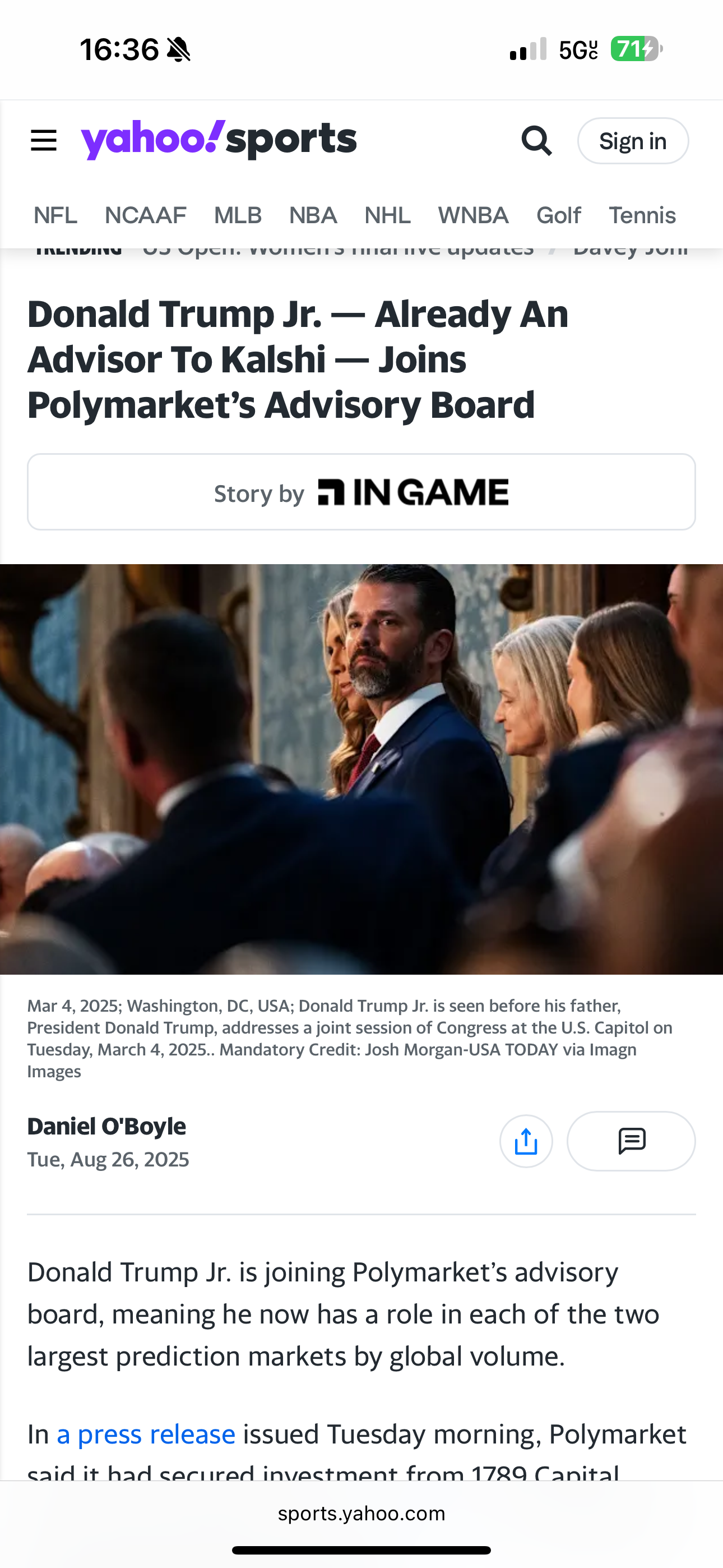The evil of sports book
-
I've said it before, but there's a casino on my drive in to work. If I sit at the junction I can predict with a pretty high level of accuracy which people are going to turn into the casino simply based on the state of their car. The closer to 'shitbox' the car is, the higher the chances are.
God only knows what happens to these people online. As far as there being winners and losers goes, it's so obvious that the only people who win are the people running the sites.
-
Gambling sites are a huge chunk of the ads one sees in sports content online. The creators do their reads telling their subscribers about all the big winners they recently had. They get the ad revenue and magically never think about the sad source of that money. Financially doomed gambling addicts.
-
Maybe Donald Trump will address this evil that so badly affects America. Because he's looking out for the little people.

-
Gambling addiction is sad. (Well, any addiction is). I remember reading the story of some pretty famous sports guy (I think a US football player) who was a gambling addict, even while playing, and how it ruined his life. Things like stealing from his parents to get money, etc.

-
A problem not only in the US
https://www.bbc.com/news/articles/cyvnlmde7dzo
Kartik Srinivas (name changed) still flinches at the mention of online betting. What began as a thrill to earn a quick buck spiralled into a five-year addiction that cost the 26-year-old his savings, peace of mind and nearly his future.
Between 2019 and 2024, Srinivas lost more than 1.5m rupees ($17,000; £13,000).
The money included three years of his earnings, as well as savings and loans from friends and family.
"I tried everything - apps, local bookies, international platforms. I was hooked," he says.
By 2024, he was neck-deep in losses.
Srinivas' story reflects the darker side of India's once booming Real Money Games (RMG) industry - where players use online platforms to bet cash on poker, fantasy sports and other games.Days ago, India passed a bill to outlaw these games, arguing they had become increasingly addictive and were leading to financial distress among people.
The new law makes offering or enabling such services punishable, with a jail term of up to three years and a fine of up to 10m rupees. Promoting them carries penalties of two years and 5m rupees, though users are treated as victims, not offenders. -
This summer I found an app that is legal in Minnesota (most online gambling is not legal if your IP is located here), and placed some parlay bets on golf (e.g., pick two players who will finish in the top 10 of the golf tournament) and baseball for fun. I won one time but (barely) lost like 9 times. Bets of like $25. Anyway, after about $300 (over a period of weeks) I stopped... I "almost" won most of the bets, but that's the point, the "house" always knows the odds which is why over time you'll barely lose and they'll barely win. Also I know I use "quotes" a lot, I'm not sure why other than for "emphasis".
-
https://www.fastcompany.com/91399289/kalshi-prediction-markets-sports-gambling
Last month, the online prediction market Kalshi filed some very dry but potentially very lucrative paperwork with the federal Commodity Futures Trading Commission (CFTC). The company, which allows users to predict real-world event outcomes that range from election winners to the annual number of U.S. cases of whooping cough, announced its intent to offer markets for football point spreads, totals, and individual touchdown scorers, too.
In other words, Kalshi users would no longer be limited to predicting game results, awards winners, win totals, and end-of-season champions. Instead, they would be able to make these sportsbook-style wagers on the platform, without going through a state-licensed sportsbook to do it.
Technically, Kalshi doesn’t take bets or set odds itself, and the company carefully avoids referring to its business as “gambling.” Instead, it enables customers to trade “event contracts” priced between 1 and 99 cents, where the prices roughly correspond to the percentage chance that the market believes a given outcome will occur. Kalshi, which allows trading both on its own site and also through its partnership with Robinhood, makes its money on transaction fees. When the market “resolves,” those who hold the winning position are paid out at $1 per share.
For example, if Kalshi offers a contract for whether Justin Jefferson catches a touchdown on Monday Night Football, and Jefferson promptly reels in a 77-yard bomb and then hits the Griddy, those who bought shares in the “yes” position would get to cash in. Those who banked on Vikings quarterback J.J. McCarthy struggling to throw downfield in his regular-season debut would get nothing. (As of this writing, Robinhood allows users to bet on some sports outcomes via its Kalshi partnership, but doesn’t yet offer Kalshi’s prop bets.)
-
 T taiwan_girl referenced this topic on
T taiwan_girl referenced this topic on
